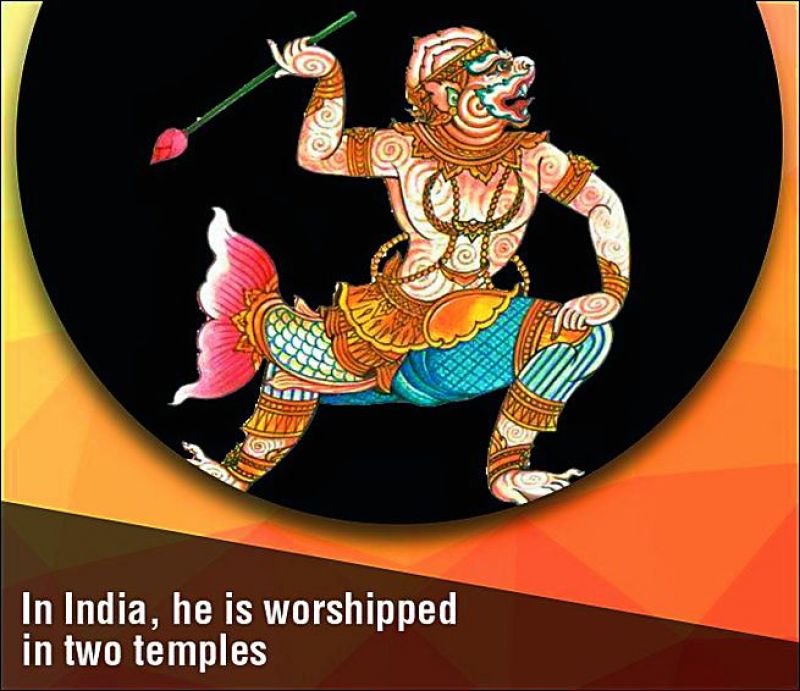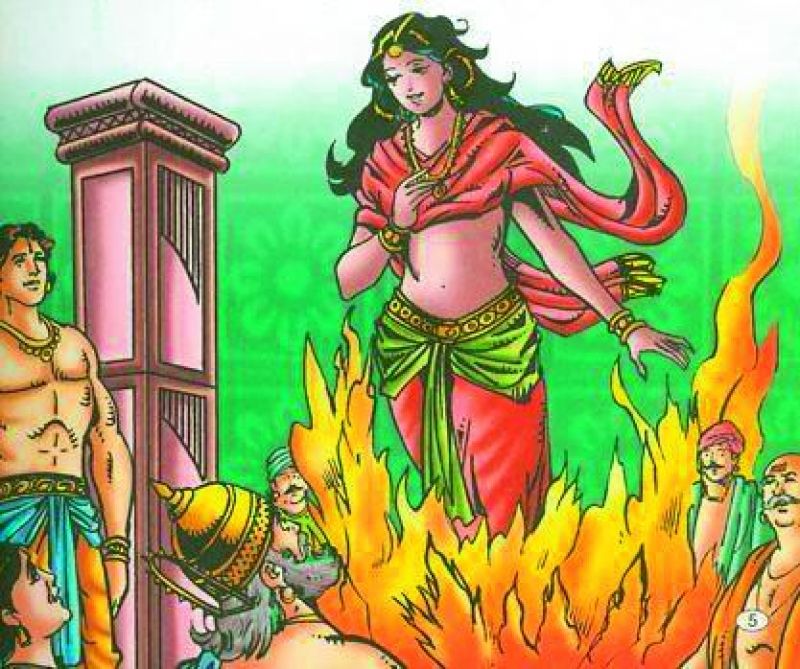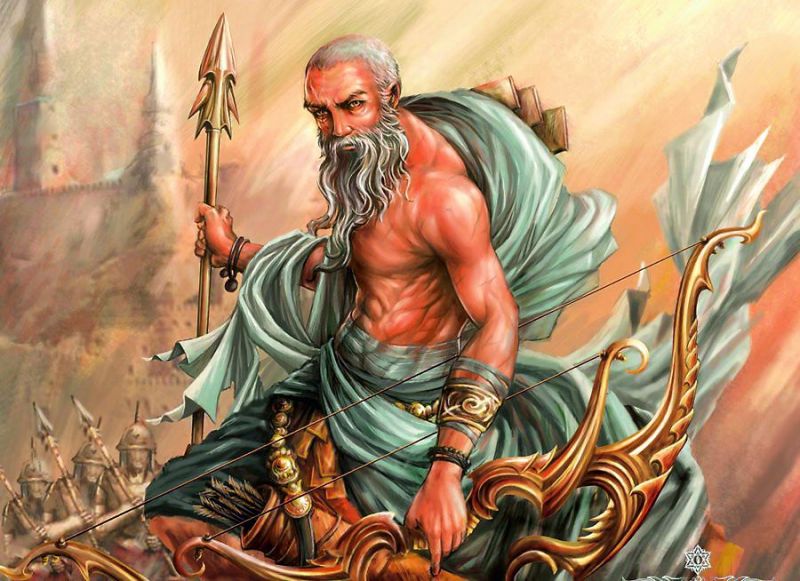Immaculate conception
While there is much ado about the high court judge's peacock comment, our scriptures show that such myths go far deeper.
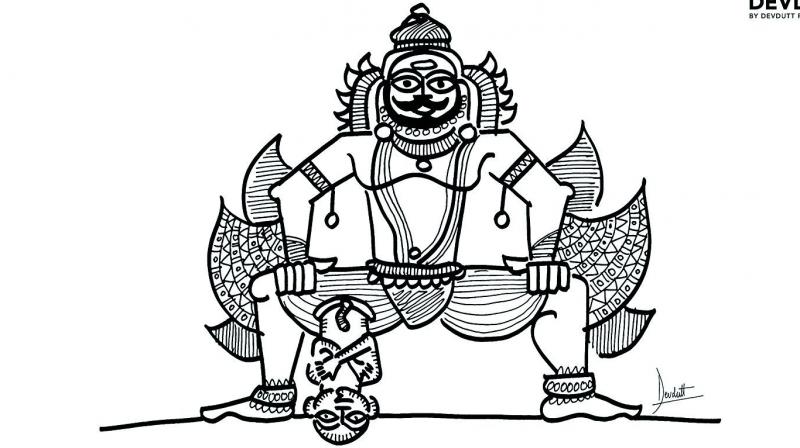
The obsession with the sacred sex life of the peacock has occupied prime time in the media over the past few days. Mahesh Chandra Sharma, the former RajasthanHigh Court judge who wants cows to be designated as India’s national animal, made a baffling statement about India’s national bird. “The peacock is a lifelong brahmachari (celibate). It never has sex with the peahen. The peahen gets pregnant after swallowing the tears of the peacock,” he said.
While the nation shed ‘tears’ of laughter after the statement was made, and many memes and tweets making fun of the judge surfaced online, one wonders where he got the idea from.
When questioned about its scientific proof, Judge Sharma said, “It is written in our holy books that peacock is a brahmachari. It’s written in Brahma Puranwhichis thousands of years old,” he said and added, “Science comes below mythology.”
Mandhata or Mandhatri
The man who gave birth
According to the Mahabharata, king Yuvanaswa of Ayodhya was childless. Once, he went on a hunting expedition and by afternoon, he was wracked with thirst. He came across the hermitage of Sage Bhrigu but found no one. The king saw a pitcher of water and drank it. The water was actually meant for his queen so she could conceive. Since the king drank it, he became pregnant with a son, who was delivered through the king’s thigh. When the king wondered how he could nurse his son, Indra, king of the gods cut his thumb and let the prince suckle on it, for milk is said to flow in the veins of gods. The prince, born from a man and suckled by a god, is named Mandhata.
Kauravas
 Gandhari gave birth to a piece of flesh, which was later cut and the 100 Kauravas were born
Gandhari gave birth to a piece of flesh, which was later cut and the 100 Kauravas were born
 Kunti praying to the the Sun god for a child, as a result of which Karna was born
Kunti praying to the the Sun god for a child, as a result of which Karna was born
Mythology connection
One theory about Sharma’s remark lies in Hindu mythology. Stories of divine and magical births have always been a part of Hinduism. While most of us know about stories of the birth of Karna, the Pandavas and the Kauravas mentioned in the epic Mahabharata, there are numerous such stories, where a religious character is not born the natural way.For example, in a few versions of Ramayana it is mentioned that Lord Hanuman, who was a bal brahmachari, had a son named Makardhwaja. When Lord Hanuman took a dip in the sea (after burning down Lanka), a drop of his perspiration fell into the mouth of a mighty Makara. Out of this, Makardhwaja was born. Author Anand Neelakantan, who is the writer of many mythological fictions such as Asura: Tale of the Vanquished and Ajaya: Roll of the Dice, says that there are many things that are mentioned in the puranas, but one shouldn’t take things literally. “Peacock being a celibate is mentioned in the puranas. However, the puranas are written in a poetic form and are mostly symbolic. To take it literally and use it in day-to-day life is foolish,” Anand says.
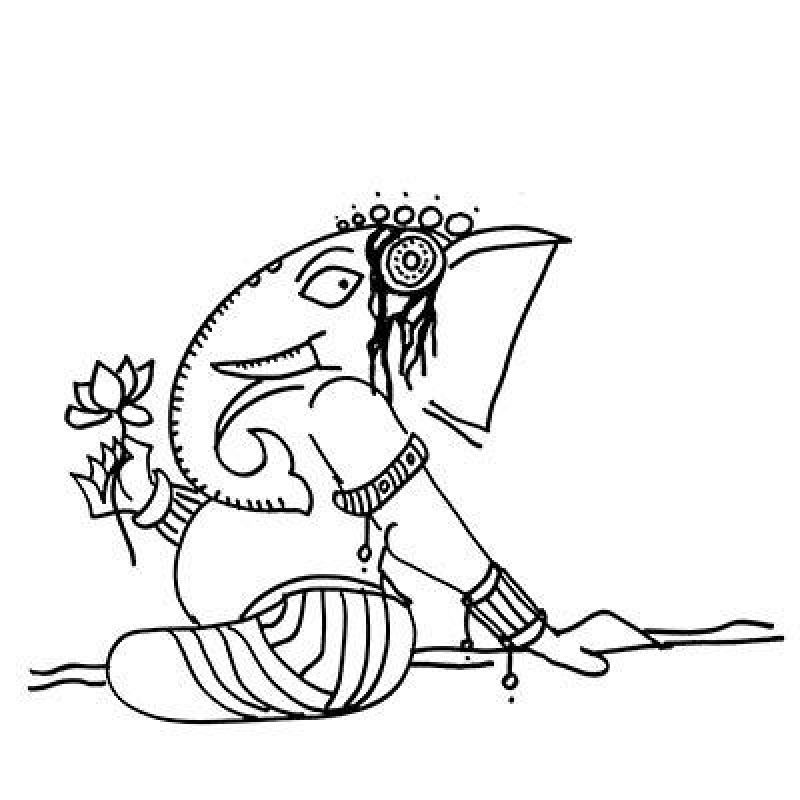 Ganesh, who was created solely by Goddess Parvati from sandalwood
Ganesh, who was created solely by Goddess Parvati from sandalwood
Out of body experience
Talking about the unnatural births in Hindu mythology, Anand adds, “There are many such stories. A famous one is about the birth of Lord Ganesh, who was created by Goddess Parvati out of sandalwood, without the help of Lord Shiva. These stories mostly have allegorical meaning; it becomes problematic when people try finding a pseudoscientific meaning in them.” Another interesting story which finds place in the Shiva Purana is about a demon called Andhaka. While Lord Shiva was meditating on Mandara Mountain, Goddess Parvati, who was in a playful mood, covered Shiva’s eyes due to which the entire universe was covered in darkness. The sweat that oozed out of Goddess Parvati’s hands due to touching Shiva fell to the ground and created a horrible looking and blind boy. Goddess Parvati was terrified on seeing him; however Shiva said that since he was born due to their physical contact, he was their child. When the childless demon king Hiranyaksha performed penance to please Lord Shiva in order to beget a child, Shiva gifted the child to him and named him Andhaka due to his blindness.“I personally find it absurd that a man who holds such an important position in the judiciary system of India has made such a comment,” says Preetha Rajah Kannan, author of the book Son of Shiva: The Champion of the Gods and Shiva in the City of Nectar. “I haven’t studied the purana in question, but I too have heard that the peacock is a celibate. However, these things don’t stand ground when tested scientifically. Also, there are many such things mentioned in mythology, but they are there to create awe and fascination. People pick up stories from the puranas out of context and quote only what suits them, which isn’t right,” Preetha adds.
A hundred blessings
According to Mahabharata, after Gandhari was married to Dhritarashtra, she wrapped a bandage over her eyes and vowed to share the darkness that her husband lived in. Once Sage Vyasa came to visit Gandhari in Hastinapur. She took great care of the saint who was pleased with Gandhari and granted her a boon that she would be blessed with one hundred sons. Gandhari found herself to be pregnant, but after two years of pregnancy, she gave birth to a hard piece of lifeless flesh that was not a baby at all. Vyas told Gandhari that he would cut the piece of flesh into hundred pieces and place them in the jars, which would then develop into the one hundred sons that she so desired, and so the 100 Kauravas were born.
Bhagiratha
According to Krittivasa Ramayana, when the famous king of the Sun Dynasty Maharaja Dilipa died, the demigods become concerned that he did not have an heir. Shiva appeared before the king’s two widowed queens and commanded, “You two make love together and by my blessings you will bear a beautiful son.” The two queens executed Shiva’s order and one of them conceived a child. The child was born boneless, but by the blessings of the sage Ashtavakra, the child was restored to full health. Ashtavakra named the child ‘Bhagiratha’ — he who was born from two vulvas (bhaga). Bhagiratha later became one of the most famous kings of India and is credited with bringing the Ganges River down to earth through his austerities.
Draupadi and Dhristadyumna
According to the Mahabharata, king Drupada of Panchala had been defeated by the Pandava prince Arjuna on behalf of Dronacharya, who subsequently took half his kingdom. To gain revenge on Dronacharya, he performed a yajña called Putrakameshtiyajna to obtain a means of besting him. From the sacrificial fire, Draupadi emerged as a beautiful dark-skinned young woman after her sibling Dhrishtadyumna.
Dronacharya
According to Mahabharata, sage Bharadwaja went with his companions to river Ganga to perform his ablutions. There, he saw a beautiful apsara named Ghritachi who had come to bathe. The sage was overcome by desire, causing him to produce a reproductive fluid. Bharadwaja muni captured the fluid in a vessel called a Drona, and Dronacharya himself sprang from the fluid thus preserved.

